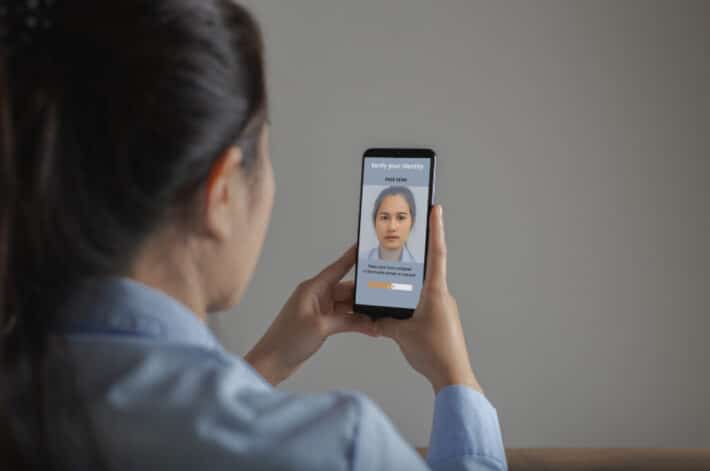The Evolution Of Identity Verification In Healthcare

Identity verification in healthcare has transitioned from conventional manual methodologies to digital solutions. It is imperative to prioritize patient safety and privacy in the contemporary digital landscape. This article will analyze the advantages and disadvantages of manual verification and the technological progress that has facilitated digital identity verification and evolution of identity verification in healthcare. Furthermore, we will address the difficulties and resolutions associated with implementing digital verification, encompassing privacy concerns and user experience.
We invite you to delve into the forthcoming landscape of identity verification in healthcare and the prospective innovations that could bring about transformative changes in the industry.
The Importance of Identity Verification in Healthcare
In the fast-paced healthcare industry, the importance of robust identity verification systems cannot be emphasized enough. These systems play a crucial role in ensuring patient safety, safeguarding data security, and preventing medical identity theft. The implementation of comprehensive identity management solutions in healthcare environments not only improves adherence to regulatory standards but also strengthens the overall integrity of patient information.
Ensuring Patient Safety and Privacy
Ensuring patient safety and privacy is a fundamental aspect of effective healthcare delivery, and the implementation of secure identity verification methods plays a crucial role in this process.
By incorporating secure identity verification techniques, healthcare providers can verify the identities of individuals who access patient records, thereby ensuring that only authorized personnel can retrieve sensitive medical information. These systems are instrumental in preventing data breaches and unauthorized disclosures, thereby strengthening patient confidence in the healthcare system.
Furthermore, secure identity verification facilitates accurate patient identification, thereby reducing the likelihood of medical errors and enhancing the overall quality of care. Highlighting the significance of data protection and confidentiality, healthcare providers prioritize the adoption of these sophisticated technologies to uphold the highest standards of patient safety and privacy.
Traditional Methods of Identity Verification
Conventional approaches to identity verification in the healthcare sector frequently entail manual procedures that, although emphasizing compliance, possess distinct advantages and limitations concerning efficiency and precision.
Pros and Cons of Manual Verification
The utilization of manual verification processes in the healthcare industry presents both advantages and challenges.
On a positive note, manual verification methods provide healthcare providers with increased authority over the identity verification process, thereby ensuring the security of sensitive patient data. This hands-on approach also instills confidence in upholding regulatory compliance, as staff members are able to directly authenticate documents and credentials in alignment with industry regulations.
However, the dependence on manual procedures can result in slower verification times and heightened possibilities of human errors, potentially affecting the overall efficiency and precision of the verification process.
The Rise of Digital Identity Verification
The emergence of digital identity verification has transformed the healthcare industry, introducing advanced technological solutions aimed at bolstering data security, ensuring adherence to regulatory norms, and optimizing the verification procedures.
Advancements in Technology and Security
Technological progress and advancements in security have greatly improved the effectiveness of digital identity verification procedures in the healthcare sector. In recent times, the incorporation of biometric authentication techniques like facial recognition and fingerprint scanning has transformed the approach adopted by healthcare institutions in authenticating patient identities and safeguarding the security of their confidential information. The introduction of blockchain technology has brought forth a new standard of transparency and immutability to identity verification systems, facilitating the secure and smooth exchange of patient data among various healthcare entities. These developments not only enhance administrative efficiency but also fortify patient privacy and confidentiality in the evolving digital healthcare environment.
Challenges and Solutions in Implementing Digital Verification
The implementation of digital verification within the healthcare sector presents a series of challenges, encompassing privacy considerations and the imperative of delivering a user experience that is both seamless and efficient. Nonetheless, there exist effective solutions to effectively tackle these complex issues.
Addressing Privacy Concerns and User Experience
The critical components of effectively implementing digital verification in healthcare include addressing privacy concerns and enhancing user experience.
It is of utmost importance to ensure compliance with data protection laws such as the Health Insurance Portability and Accountability Act (HIPAA) and the General Data Protection Regulation (GDPR) when handling sensitive personal information. By integrating robust encryption methods and secure data storage practices, healthcare organizations can establish trust with patients and safeguard their privacy.
Furthermore, optimizing the user interface of digital verification systems can simplify the verification process, enhancing patient navigation and minimizing the likelihood of errors or delays in accessing healthcare services.
The Future of Identity Verification in Healthcare
The potential advancements in identity verification within the healthcare sector offer a promising outlook for the future. Innovations like biometric authentication and blockchain technology are positioned to propel digital transformation and make a substantial impact on the industry.
Potential Innovations and Impact on the Industry
Potential innovations such as biometric authentication and blockchain technology are poised to revolutionize the healthcare industry by enhancing the security and efficiency of identity verification systems. Biometric authentication introduces a personalized approach to identity confirmation by analyzing distinctive physical attributes like fingerprints, iris patterns, or facial features. This method not only strengthens security by raising the difficulty level for unauthorized individuals attempting to access sensitive medical data but also simplifies the verification procedure, thereby decreasing the likelihood of identity theft.
On the other hand, blockchain technology offers a decentralized and tamper-proof platform for securely storing and exchanging patient data, ensuring that healthcare providers have access to precise and current information. These advancements hold the potential to reshape the process of verifying patient identities, ultimately leading to safer and more effective healthcare services.
Frequently Asked Questions
What is the importance of identity verification in healthcare?
Identity verification helps to ensure the accuracy and security of patient information, protect against medical identity theft, and prevent fraud and errors in healthcare services.
How has identity verification evolved in healthcare over time?
In the past, identity verification in healthcare relied heavily on manual processes and paper records. However, with advances in technology, electronic verification methods such as biometrics and secure digital platforms have become more prevalent.
What challenges have emerged with the evolution of identity verification in healthcare?
One challenge is ensuring the privacy and security of sensitive patient data while implementing new verification methods. Another challenge is integrating different systems and databases to verify patient identities across multiple healthcare providers.
How does identity verification benefit healthcare providers?
Identity verification helps healthcare providers to accurately identify patients, streamline registration processes, reduce administrative costs, and improve the overall quality of care delivered.
What are some potential future developments in the evolution of identity verification in healthcare?
With the rise of telehealth and remote patient care, there may be a greater focus on digital identity verification methods that can be used remotely. Additionally, advancements in artificial intelligence may lead to more efficient and accurate identity verification processes.
How can patients ensure the security of their personal information in the evolving landscape of identity verification in healthcare?
Patients can take steps to protect their personal information by regularly reviewing their medical records, monitoring their insurance statements, and reporting any suspicious activity to their healthcare provider. It is also important to only share personal information with trusted and secure sources.



